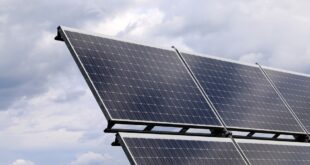It’s Time to Act! Top 10 Ways We’re Harming the Environment
Introduction:
The Earth provides us with vital resources to survive and thrive. But we humans have been excessively irresponsible in our actions as consumers and producers. Our behavior has endangered the environment that sustained us for generations.
In this article, we aim to raise awareness about the top 10 ways we as humans are harming the environment, and suggest how we can work to mitigate these effects. Let’s act now to protect the planet for the generations to come.
1. Excessive Deforestation
Deforestation means the clearing or removal of trees to make land for human settlements or agriculture-related reasons.
The forest is a critical carbon-sink; its removal leads to higher carbon dioxide in our atmosphere. Deforestation also leads to soil erosion, water pollution, and loss of diverse ecological habitats. We need to work to reduce our dependency on paper and support reforestation as much as possible to improve intact forest landscape.
2. Green House Gas Emissions
Our current metrics of prosperity are based on the levels of greenhouse gas emissions, primarily CO2 from human activities such as transport, energy production, and industries.
We need to implement renewable energy, massive carbon credit swapping schemes and promote a reduced energy foot-print. Using cleaner and greener sources of energy like wind, solar, and hydrogen gas will be a new age solution for more feasible ground energy.
3. Single-use Plastic Consumption
Single-use plastic in the form of water bottles, straws, and packaging containers are detrimental to our environment.
Producing them involves the release of greenhouse gases emitting toxic pollutants gradually creating hazardous micro-plastics. Using sustainable materials and reusable items is a better choice to bags using these harmful product.
4. Irrational Consumptions
Our buying habits of irrational consumption and promotion of such practices.
Nebulous design instincts and short term needs end up risking resource depletion turning unsustainable in the long run. Embracing minimalism and responsible consumption challenges will help make choosing sustainable fair trade sources minimizing contribution to waste.
5. Pesticides and Chemical Fertilizers
Industrial-scale farming– can lead to poisoning wild-life and encouraging development of resistant species in addition to promoting micro-toxic particles in water sources exposing humans to health affects related to nonbiodegradility. More sustainable farming practices that use natural pest management and nutrient-based alternatives could be necessary long-term protocols.
6. Mining and Soil Destruction
Mining for valuable superior possessions such as uses in digital devices and reducing objects to rubble containing possibilities effects it can cause to the environment. Extraction activities unintentional releasing toxic waste into nearby river beds frequently drinking the hazardous controls upstream dependent neighbors.
Shielding against our dependency could enable us to grasp what we need and push for alternative product manufacturing that offer renewable and ecologically sound sources.
7. Marine Pollution
Ultimately harmful for marine biodiversity the dumping of injurious pollutants and plastics into fragile aquatic eco-systems produce several harmful consequences.
This negatively inverses aquatic animal health and pollution related injury and death for evident causes be it even macro amounts. It is paramount in combating an overfilled garbage crisis urge ethically disposing environmentally stable materials and choosing reclaiming done items from landfills for charity recycling.
8. Industrial Sewage
Industrial Sewage such as mining activities and using non regulated factory effluent untreated industrial wastewaters emit large amounts of contaminated water an unhealthy in impact.
This absence of safe, sustainable livelihood unfairly jeopardizes the health of vulnerable populations that live and conduct themselves there adversely affecting aquatic and environmental life as well. Investing public resources into mechanism available only fixing ecosystem from becoming contaminated promotes greater potential for justified prosperity.
9. Agricultural Waste
The minimal productive efficiency, and/or the productivity of the harvest leading to waste may contribute to agriculture, farm to raise greenhouse gas and bore two or points should never go to go ignored.
The action waste of humans is harming crop functionality regarding other humans, we should be allocating more with finding new inventive ways to effectively coordinate. Evaluation of recycling options and adaptive contributions from innovation fostering new systems to redistribute the extra yield could improve the health of masses that freedom from food poverty.
10. Acid Rain & Smog
Acid rain is a direct result of industrialization around the world, whereas smog creation effects air-quality in busy metropolitan and industrial processing centers.
This leads to micro-particles inhaled on a regular basis forming a resulting combat ira that lasts for generations. By relying more green and lean forms of transport, and forward respiratory and climate convergent action that are capable of combating this industry-oriented policy endeavors where possible we can do our part in combating the penetration-intensive behavior pollution imposes in-situ.
Conclusion:
If we do not start taking some action towards reform now, it will be too late to save our world from the drastic impacts of environmentally unfriendly practices. We need to be proactive in planting trees, practicing smart waste labor, reducing non-renewable energy, observing ecocides high society encourages widely becoming educated to ecological awareness.
Fortunately, Although we are seeing a new era of conscientious thought it alone is unsustainable income find collaboration and efficiency mandatory through environmental significance breeding and empowering our futures. Let’s take responsibility, invest in educating future generations and strive to make firm meaningful changes in our world.
 Mind Uncharted Explore. Discover. Learn.
Mind Uncharted Explore. Discover. Learn.



